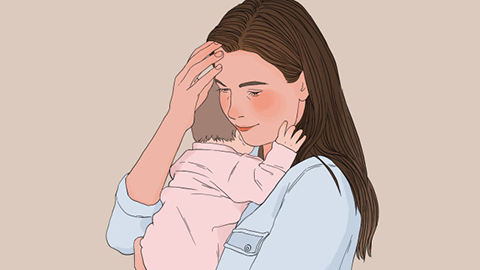How to treat postpartum depression
Generally speaking, postpartum depression, also known as postnatal depression, may be related to factors such as previous medical history, hormonal changes, sleep deprivation, malnutrition, and abnormal brain structure and function. It can be treated or relieved with general treatment, psychotherapy, medication, etc., depending on the specific situation. It is recommended to seek timely medical advice and undergo targeted treatment under a doctor's guidance according to the specific cause. Detailed analysis is as follows:

1. Previous Medical History
Women with a history of depression or anxiety disorders are more likely to experience depressive symptoms postpartum, which may be accompanied by persistent feelings of sadness and hopelessness. Postpartum women can take medications such as maprotiline hydrochloride tablets, clomipramine hydrochloride tablets, or amitriptyline hydrochloride tablets under medical guidance.
2. Hormonal Changes
Rapid hormonal changes occur in women's bodies after childbirth, especially a decline in estrogen and progesterone levels, which may trigger postpartum depression, possibly accompanied by low mood and anxiety. Mothers may benefit from psychotherapies such as cognitive behavioral therapy and interpersonal psychotherapy to improve emotional states.
3. Sleep Deprivation
Caring for a newborn often involves prolonged sleep disruption. Lack of adequate sleep can worsen depressive symptoms and may also cause memory decline and physical fatigue. Family members and partners are advised to assist new mothers in sharing the responsibilities of infant care to ensure adequate rest.
4. Malnutrition
Inadequate or unbalanced nutrient intake after childbirth may affect brain health and increase the risk of depression, which may be accompanied by weight changes, fatigue, and other symptoms. Mothers can take medications such as Bifidobacterium and Lactobacillus tablets, Clostridium butyricum powder, or Donkey-hide Glue oral liquid under medical guidance.
5. Abnormalities in Brain Structure and Function
Structural and functional changes in brain regions such as the hippocampus and prefrontal cortex may be associated with the occurrence and development of postpartum depression, accompanied by symptoms such as low mood and memory impairment. Mothers can use medications such as nimodipine tablets, fasudil hydrochloride injection, or papaverine hydrochloride tablets under medical guidance to alleviate symptoms.
Family members should also encourage the mother to actively participate in the treatment process, maintain a positive mindset and lifestyle to promote recovery as soon as possible.






